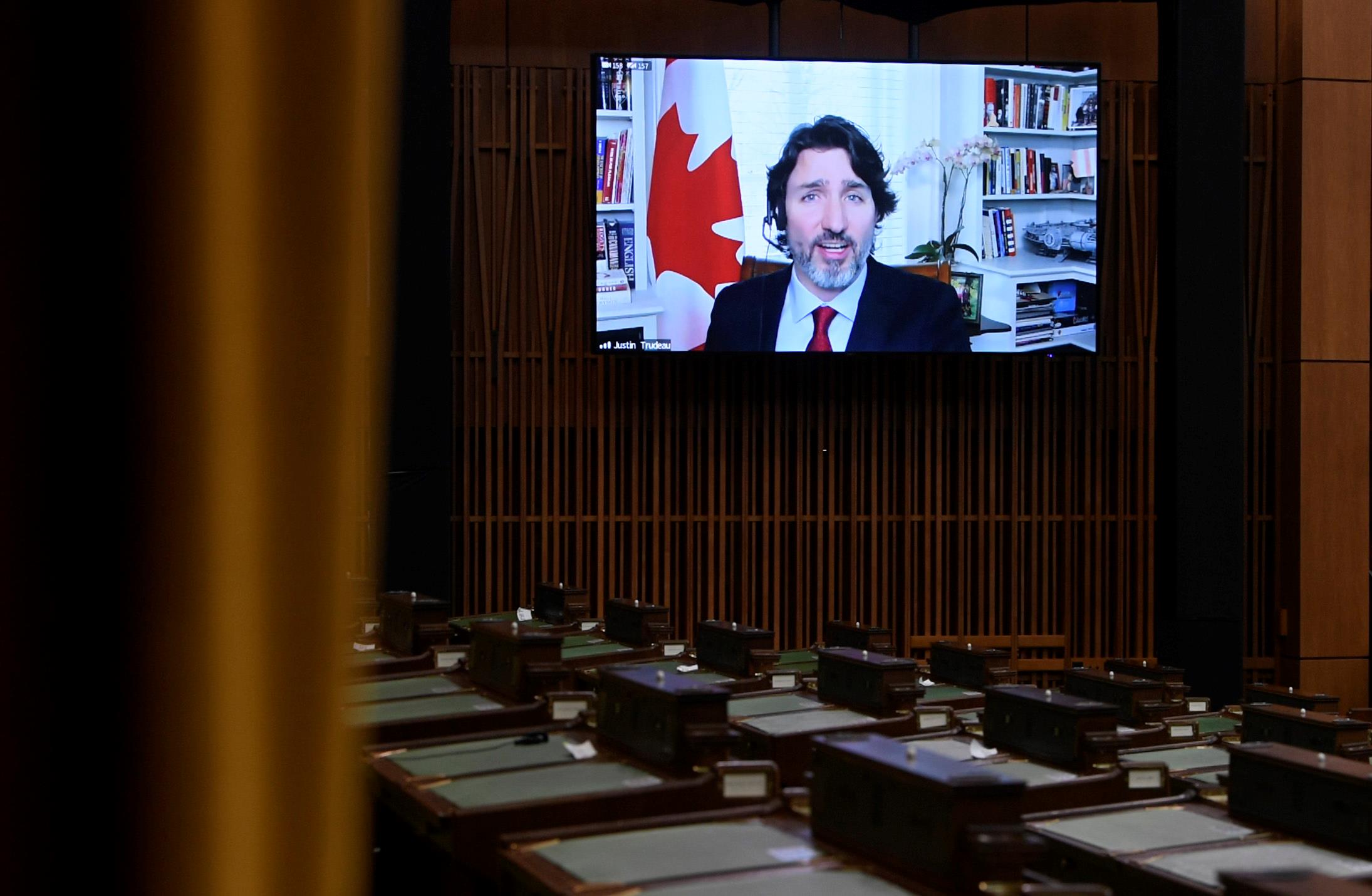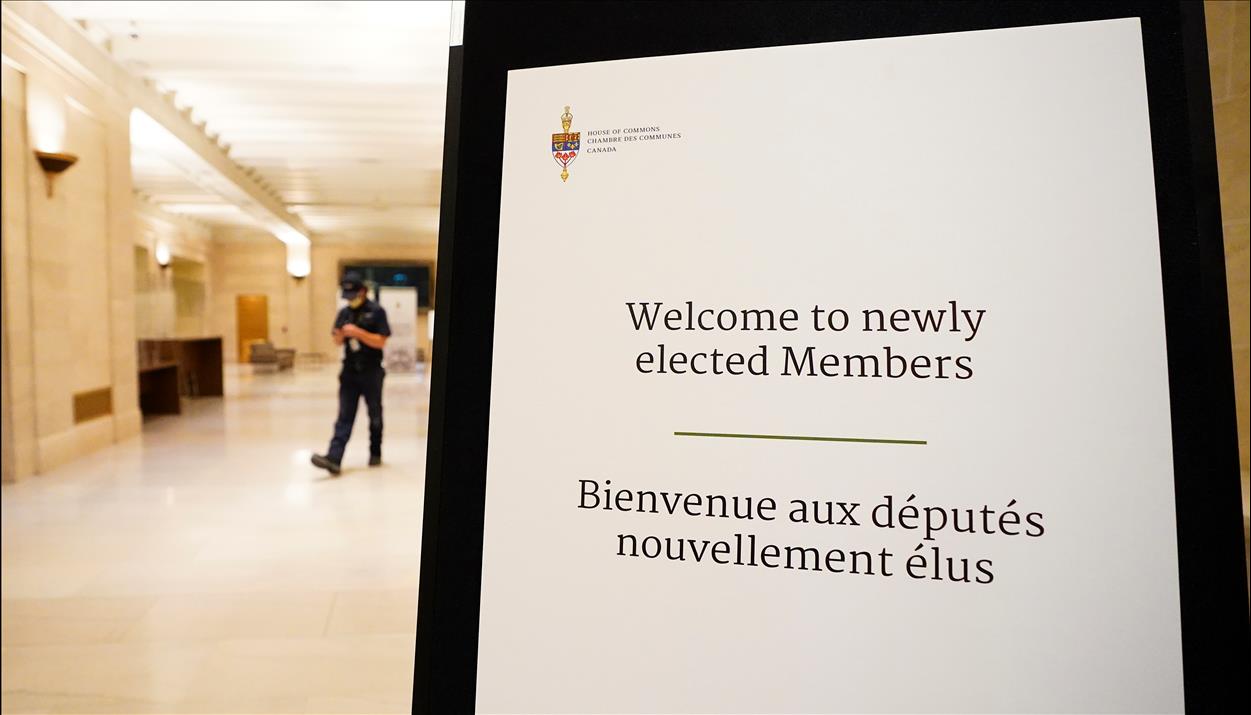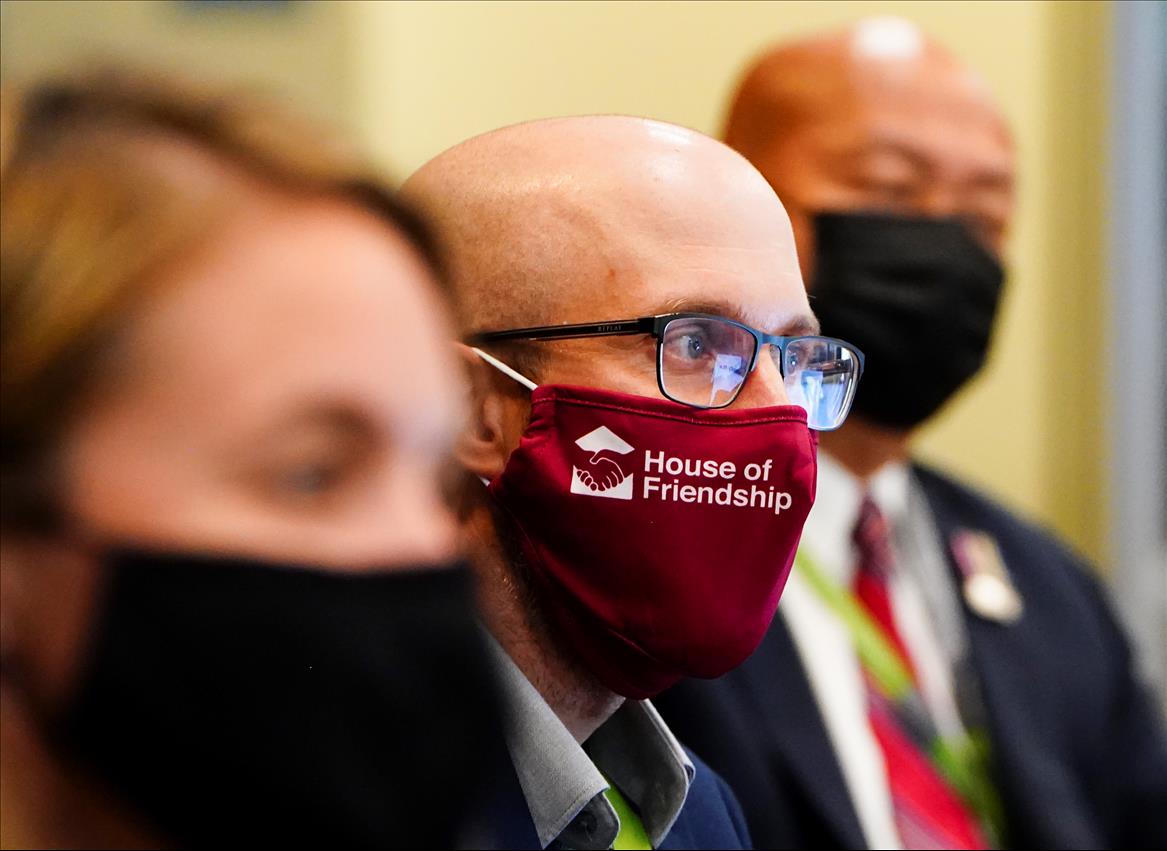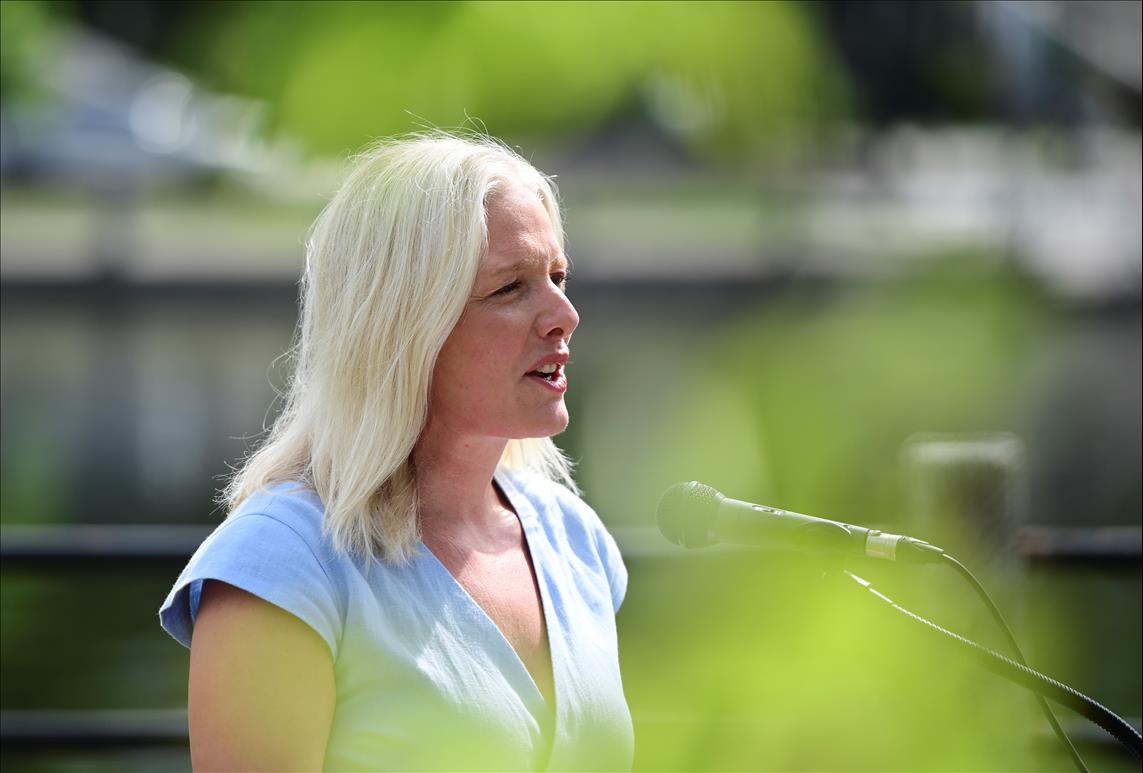Author:
Louise Cockram
(MENAFN- The Conversation) Members of Parliament in Canada go through a trial by fire when they first enter the House of Commons. After an exhausting election period, new MPs must quickly come to grips with House of Commons procedures, hire staff and set up their constituency offices.
Rookie MPs who will soon enter the 44th Parliament are facing unique obstacles in addition to these existing challenges.
These hurdles include a lack of social contact with senior MPs if the House continues with hybrid sittings that limit in-person attendance, increased constituency service demands and a heightened climate of hostility towards politicians.
COVID-19 prevention measures will still be necessary when Parliament resumes in November. Even though the House has imposed a vaccine mandate on MPs , high COVID-19 case counts in some parts of Canada mean it's likely that hybrid sittings will continue.

Prime Minister Justin Trudeau appears at Question Period virtually during a sitting of the House of Commons in February 2021. THE CANADIAN PRESS/Adrian Wyld New MPs who participate virtually in the 44th Parliament will not benefit from receiving in-person advice from their senior colleagues. Rookie MPs don't typically enter the House as“ready-made” representatives and must undergo a period of orientation to learn their constituency and scrutiny roles.
New MPs need advice from experienced peers
The Canadian House of Commons provides new members with a two-day orientation program that focuses on administration (for example, the rules surrounding budgets and setting up constituency offices) and procedure in the House. The orientation program for new members in the 44th Parliament was held in late September 2021 .
Through my preliminary research on the orientation of new MPs, I have found that MPs are more likely to learn their role through advice from experienced members, party staff and on-the-job learning rather than the House orientation session.

A House of Commons message board welcomes newly elected members of Parliament in Ottawa in September 2021. THE CANADIAN PRESS/Sean Kilpatrick The House is reluctant to define the role of an MP and provides rookies with an overload of information during the orientation period. This means MPs look elsewhere to understand their new role — mostly they rely on fellow MPs and staff within the party for impromptu advice and to help them absorb the rules around them.
Academic work in both Canada and the United Kingdom supports the idea that MPs primarily learn about their new positions through ad-hoc advice and learning on the job. Philip Norton, a political scientist and House of Lords peer in the U.K., describes social interaction between members as“an intrinsic part of parliamentary life, important to members for learning the rules and practices of the institution … .”
The possibility of a hybrid Parliament means that rookies who participate virtually will not benefit from face-to-face advice during chamber sittings.
In theory, rookie MPs can organize remote mentorship with more experienced MPs via video calls. However, they won't receive the benefit of the in-person advice and guidance that often helps new MPs during those stressful first months.
Increased service demands
Through their constituency offices, MPs and their staff act as a link between constituents and government services. The COVID-19 pandemic has pushed many Canadians into hardship, and MPs' offices are often on the front lines dealing with requests for help. MPs say that constituency service requests have grown dramatically since the beginning of the pandemic .
The MPs I interviewed for my research on MP orientation remembered receiving a deluge of constituency correspondence the day after the election.
Constituents expect their MPs to hit the ground running. This means that rookie MPs must answer constituency service requests while they are still learning their new role. The increase in constituency service requests during the pandemic will likely make the learning process harder for rookie MPs.

Newly elected member of Parliament Mike Morrice, middle, of the Green Party joins other new MPs as they take part in an orientation session in Ottawa in September 2021. THE CANADIAN PRESS/Sean Kilpatrick Hostility towards politicians
The increased climate of hostility towards politicians in Canada will be an unenviable learning curve for MPs new to the national political scene. This has been the case in the U.K., too, as the recent slaying of another British MP has illustrated.
Read more: David Amess killing: threats of violence and harassment have become commonplace for politicians
Of course, hostility towards female and racialized politicians has always been a reality. One only needs to look at the examples of former Canadian MPs Celina Caesar-Chavannes and Catherine McKenna to understand the gendered and racist nature of harassment towards MPs.

Catherine McKenna, then minister of infrastructure and communities, holds a news conference in Ottawa in June 2021 shortly after announcing she would not run for re-election in her riding of Ottawa Centre. THE CANADIAN PRESS/Sean Kilpatrick However, the harassment that candidates experienced on the campaign trail in 2021 extended much more broadly to defacing campaign signs and vandalizing the personal property of candidates. This hostility reached a boiling point when a crowd pelted gravel at Prime Minister Justin Trudeau .
All politicians have had to adjust to this new reality, though for new MPs it may be shocking to face such public vitriol.
Read more: Canadians shouldn't take for granted the recent peaceful transition after the election
The undervalued role of MPs
Members of Parliament provide an important, yet undervalued, role in Canada's democracy.
Through their scrutiny role, MPs provide a vital check on government decision-making, and via their work in their constituencies, they relay the concerns and preferences of citizens to fellow parliamentarians, including the prime minister.
The additional challenges rookie MPs will confront as they enter the 44th Parliament may hinder their ability to“hit the ground running” as they begin their responsibility to serve Canadians.

MENAFN21102021000199003603ID1103015422
Legal Disclaimer:
MENAFN provides the information “as is” without warranty of any kind. We do not accept any responsibility or liability for the accuracy, content, images, videos, licenses, completeness, legality, or reliability of the information contained in this article. If you have any complaints or copyright issues related to this article, kindly contact the provider above.